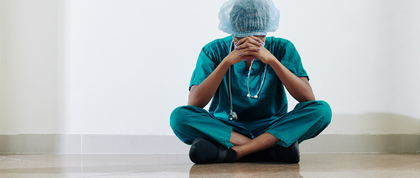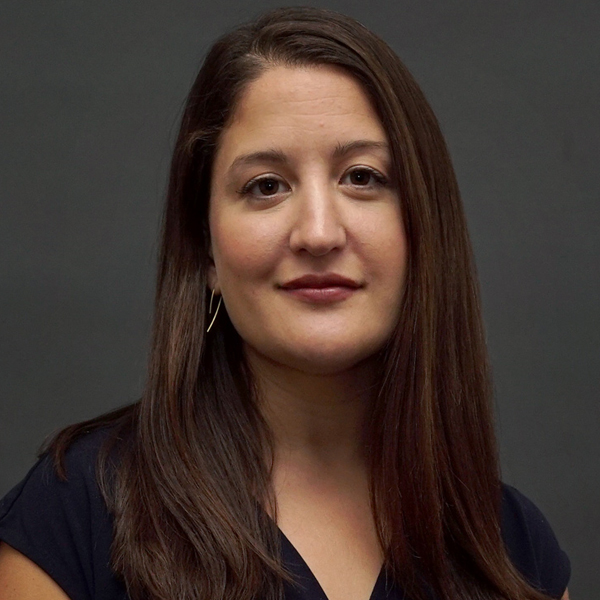
As we mark a year since the COVID-19 pandemic began, we cannot help but reflect on the myriad ways our lives have changed, including how and where we work, learn, and connect with others. Anxiety about infection; uncertainty around when vaccines will be available and the pandemic will end; discrimination due to economic, political, and social stressors; grief over those we’ve lost; worsened health disparities -- all contribute to what some are calling a “hidden mental health pandemic.”
Indeed, research studies have noted that depressive and anxiety disorders and general psychological distress have increased 3-4 fold compared to the pre-pandemic period. And unfortunately, literature suggests that we’re likely to experience a large mental health impact in the months and even years to come.
Particularly affected are adolescents and young adults, those with previous mental health conditions, and individuals with greater stressor experience (e.g., financial strain and job loss, race- and class-based discrimination, potential infection risk through essential work, school closures, loss or sickness of loved ones, or social isolation). Given the profound influence of mental health on overall health and well-being, the current situation also threatens to exacerbate existing health disparities.
These concerns led our research team to conduct the COVID-19 Southern Cities Study, a collaboration between investigators at GPH (Drs. Larry Yang, PT Le, Supriya Misra, David Abramson, and myself; PhD candidate Daniel Hagen, and several MPH students), together with researchers at Johns Hopkins Bloomberg School of Public Health and The University of Texas at Tyler.
In late May and early June, we conducted telephone- and web-based surveys of over 1,700 adult residents of Houston, Dallas, Austin, New Orleans, and Atlanta to assess their experience with COVID-related stressors, particularly discrimination, and mental health.
During the recruitment phase, we oversampled individuals in specific racial/ethnic groups to better understand differences in COVID-related discrimination and other stressors, and their potential impact on mental health disparities. We were also interested in strategies that respondents used to cope with stress. We’re currently preparing manuscripts to disseminate our findings and will present results at several upcoming conferences – so stay tuned!
There’s a critical need for research and interventions to address the structural determinants of mental health and to promote population resilience. These include efforts to eliminate racism and discrimination and promote equity in the COVID-19 response; clear and consistent communication regarding efforts to reduce infection and increase vaccination; meaningful support for individuals and businesses experiencing financial crisis, and the resumption of in-person educational instruction as soon and as safely as possible. These efforts can reduce the uncertainty and stressors that are affecting our mental health.
My hope is that we can emerge from this disaster with a greater recognition of the importance of addressing population mental health. This will require investment and innovation in mental health services, particularly for those who have long faced enormous barriers to care, as well as a commitment to addressing the structural determinants of health.

Emily Goldmann, PhD, MPH
Clinical Associate Professor of Epidemiology
What can be done to mitigate the negative impact of the current situation on mental health? The CDC and WHO provide some tips for coping with the stress of the pandemic:
- Eat healthy and limit alcohol and drug use
- Exercise regularly
- Connect with others as much as possible (but safely!)
- Maintain a daily routine
- Participate in activities that help you relax
- Take breaks from news
If you are struggling to cope, it’s important to reach out for help from a health care provider. If you or someone you know is in crisis, get help immediately.
It's OK not to feel OK. NYU is here to help.
For students, the Wellness Exchange is there for you 24/7 — and they can help you, or connect you to other people at the University who can. And this semester, each week's email from the Office of Global Spiritual Life will feature a "Wellbeing Weekly" section where, in partnership with the Wellness Exchange, students can read about important wellness topics and be reminded of our available Wellness programs and services.
For faculty, administrators, and staff, the University's Employee Assistance Program through Optum is on call and available round the clock to assist. And the Office of Work Life has created a new Workplace Wellness page with resources for all employees, including guidance for managers on how to emphasize wellness among colleagues (NYU Returns).